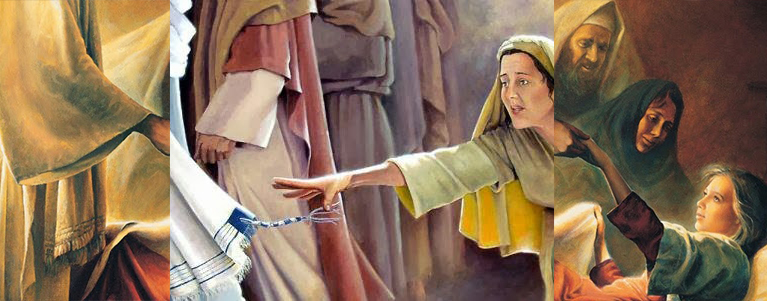What does a good life look like? That’s been the quintessential question of humanity since our genesis. Socrates sought the answer in dialogue. The writer Ecclesiastes wrestles poetically with the question, while Job fights with God about it. Abraham and Sarah leave everything they had and knew for a new life, this “good” one. Throughout history those who have great moral authority have received it for the coherence between what they taught/said and how they lived. One has only to invoke the peace-full power of Dr. Martin Luther King Junior and the way in which his ministry changed the way that people of color are seen in our white society and how they see themselves as the beloved of God.
Our scripture today addresses that definition of a good life. The older woman is past her prime, her best days are behind her, lost like the menstrual blood that she’s been oozing for twelve years. She’s as good as dead: cut off from family, friends, community, even God – for she can’t go to a house of prayer because of her condition. She’s so desperate that she interrupts the heart-wrenching request for help made by Jairus for his dying 12 year old daughter who should have her whole life ahead of her as she’s not yet an adult (that happens at 13).
Life is fast now. We move from urgency to urgency, putting out fires, longing for a break. The way Mark juxtaposes these two stories in a sandwich as he tells them we can’t help but feel the desperation, desire and despair of the untouchable woman and the well-respected father. In an society in which the good life was based upon notion of purity laws (from Leviticus and Numbers in the First Testament), the righteousness and worthiness of people was visible and social normative. These laws were given by Moses to invite the people to holy living, wholly together, living for God and demonstrating that in how they lived together. And yet, rather than unifying the people, creating solidarity and inter-dependence, it seems to have fostered alienation and polarization. This bleeding woman has been forsaken by all in her need. Jesus is hazingly mocked for expressing his faith-full hope.
The miracle that sews the stories together is the intertwining promise and potential of trust. It’s through trust or belief (it’s the same word in the Biblical languages) in God that life is received, can be known, and can transcend the un-good life that we may have. A good life usually is defined through our actions, our relationships and the word that we leave behind. Jesus invites the people of the text, and we the people who hear the text today, to a new life. One that transcends what is behind us, and what is ahead of us. A life that calls us to engagement, transformation, solidarity, respectful fear, radical trust and a new sense of family and community.
Questions for Going Deeper:
- What do you think is the message of these scriptures?
- How have you experienced it as truth in your life?
- What invitation do you hear from God in this text to act, say, be or do?
